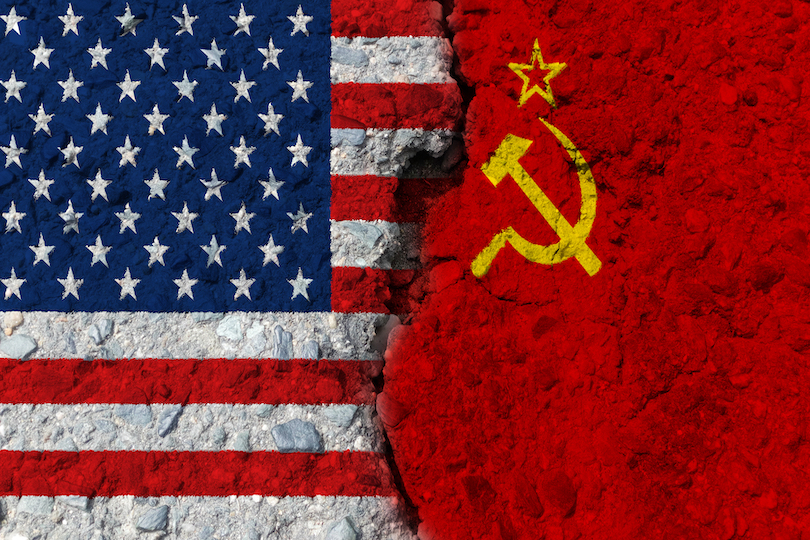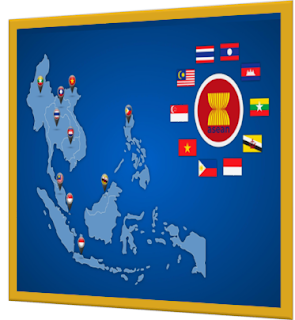Cold War
Cold war
Did you know:-
✨Why did Cold War start?
✨What led to Cold War?
✨Conditons during Cold War.
1. Why did Cold War start?
The Cold War was a period of geopolitical tension between the United States and the Soviet Union and their respective allies, the Western Bloc and the Eastern Bloc. The term cold war is used because there was no large-scale fighting directly between the two superpowers, but they each supported opposing sides in major regional conflicts known as proxy wars. The conflict was based on the ideological and geopolitical struggle for global influence by these two superpowers, following their temporary alliance and victory against Nazi Germany and Imperial Japan in 1945. Aside from the nuclear arsenal development and conventional military deployment, the struggle for dominance was expressed via indirect means such as psychological warfare, propaganda campaigns, espionage, far-reaching embargoes, rivalry at sports events, and technological competitions such as the Space Race.
2. What led to Cold War?
In late February 1946, George F. Kennan's "Long Telegram" from Moscow to Washington helped to articulate the US government's increasingly hard line against the Soviets, which would become the basis for US strategy toward the Soviet Union for the duration of the Cold War. The telegram galvanized a policy debate that would eventually shape the Truman administration's Soviet policy. Washington's opposition to the Soviets accumulated after broken promises by Stalin and Molotov concerning Europe and Iran. Following the World War II Anglo-Soviet invasion of Iran, the country was occupied by the Red Army in the far north and the British in the south. Iran was used by the United States and the British to supply the Soviet Union, and the Allies agreed to withdraw from Iran within six months after the cessation of hostilities. However, when this deadline came, the Soviets remained in Iran under the guise of the Azerbaijan People's Government and the Kurdish Republic of Mahabad. Shortly thereafter, on 5 March, former British prime minister Winston Churchill delivered his famous "Iron Curtain" speech in Fulton, Missouri. The speech called for an Anglo-American alliance against the Soviets, whom he accused of establishing an "iron curtain" dividing Europe from "Stettin in the Baltic to Trieste in the Adriatic".A week later, on 13 March, Stalin responded vigorously to the speech, saying that Churchill could be compared to Hitler in so far as he advocated the racial superiority of English-speaking nations so that they could satisfy their hunger for world domination and that such a declaration was "a call for war on the USSR." The Soviet leader also dismissed the accusation that the USSR was exerting increasing control over the countries lying in its sphere. He argued that nothing was surprising in "the fact that the Soviet Union, anxious for its future safety, [was] trying to see to it that governments loyal in their attitude to the Soviet Union should exist in these countries."
3. Conditions during the Cold War
Phase I
Sri Lanka and India
At the beginning of the Cold War America North Artic ocean was the only Navy route of the USSR and so, it takes a Longer route to attack the US and so, took advantage of it and started to form an Alliance with one of the Countries in that route And it was Sri Lanka but it could cause a problem to India so, it slowly formed a Rebellion Known ITTE which had it's Own Air force and Navy Funded from India which Later looked like ITTE is a Country and Sri Lanka the Rebellion so, it asked help from India it did and return asked to remove the Military base of US and it all occurred during the year when it got Independence. India planned it not only for self-defence but also at Russia's request.Nepal and China
After losing Sri Lanka in the Cold War America was in search of another candidate for its Military base and the best one was Nepal as it shared a border with China & India and Nepal was also very close to its enemy USSR or Soviet Union, it was undeveloped Nepal agreed but, China hated it and wanted to stop it and for that, it didn't even need to provide any military support as, the population was and could mean a war with the US which it was not ready for so, started a Civil war and Nepal had Monarchy back then. China only created hatred among the people against the Monarch.Phase II
Attack on Afghanistan
On, 24 December 1979 USSR attacked Afghanistan a bit similar to the current Russia-Ukraine War because Afghanistan was slowly becoming pro-US which meant danger for USSR just like the current in Russia-Ukraine ukraine joining NATO as, Pakistan the only US ally which shared a border with Afghanistan so, it supplied ammunition but, according to many Politicians say if ammunition wasn't supplied Afghanistan would have been more Politically stable.
What do you think?
Plz, comment ;)👇



Comments
Informative..